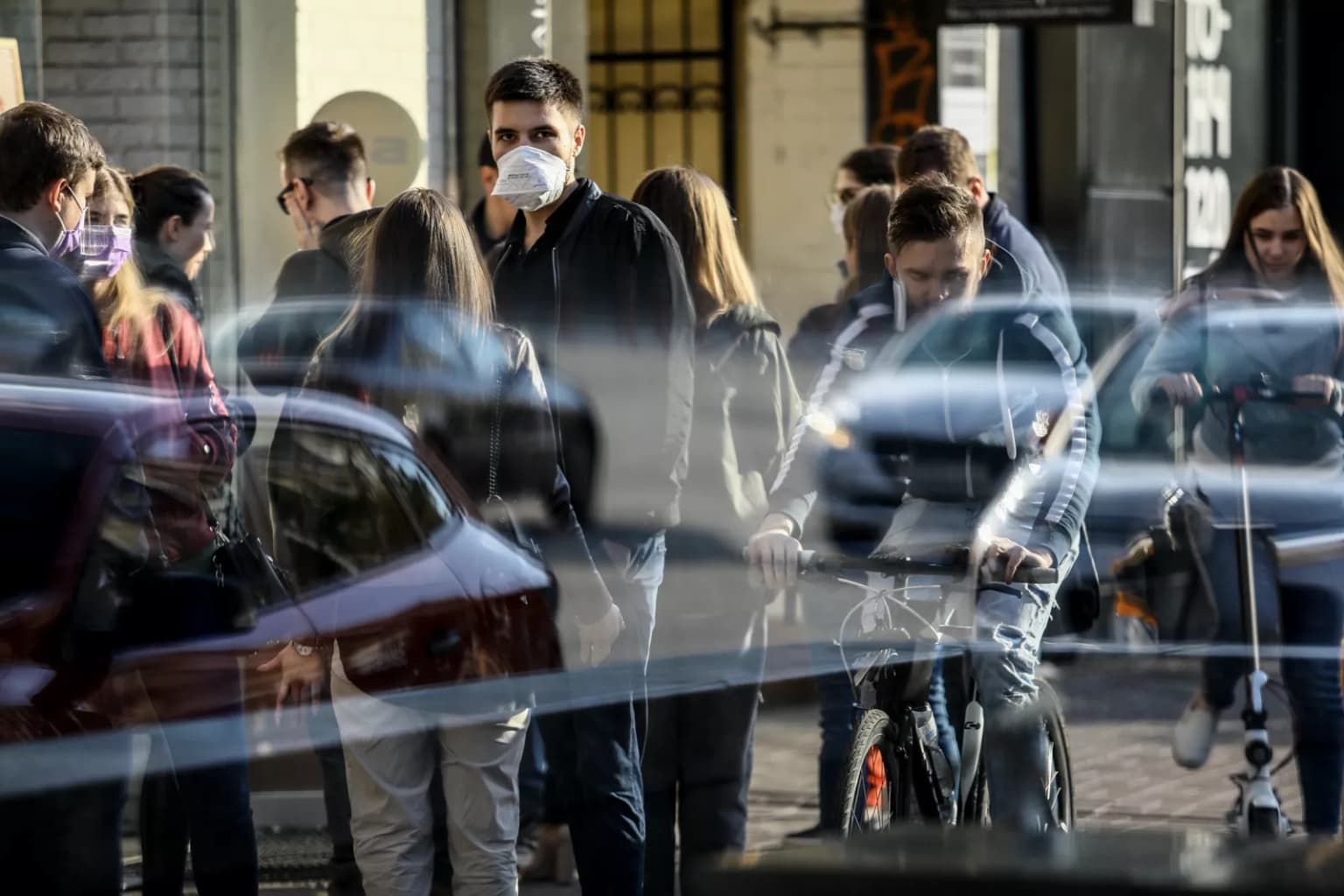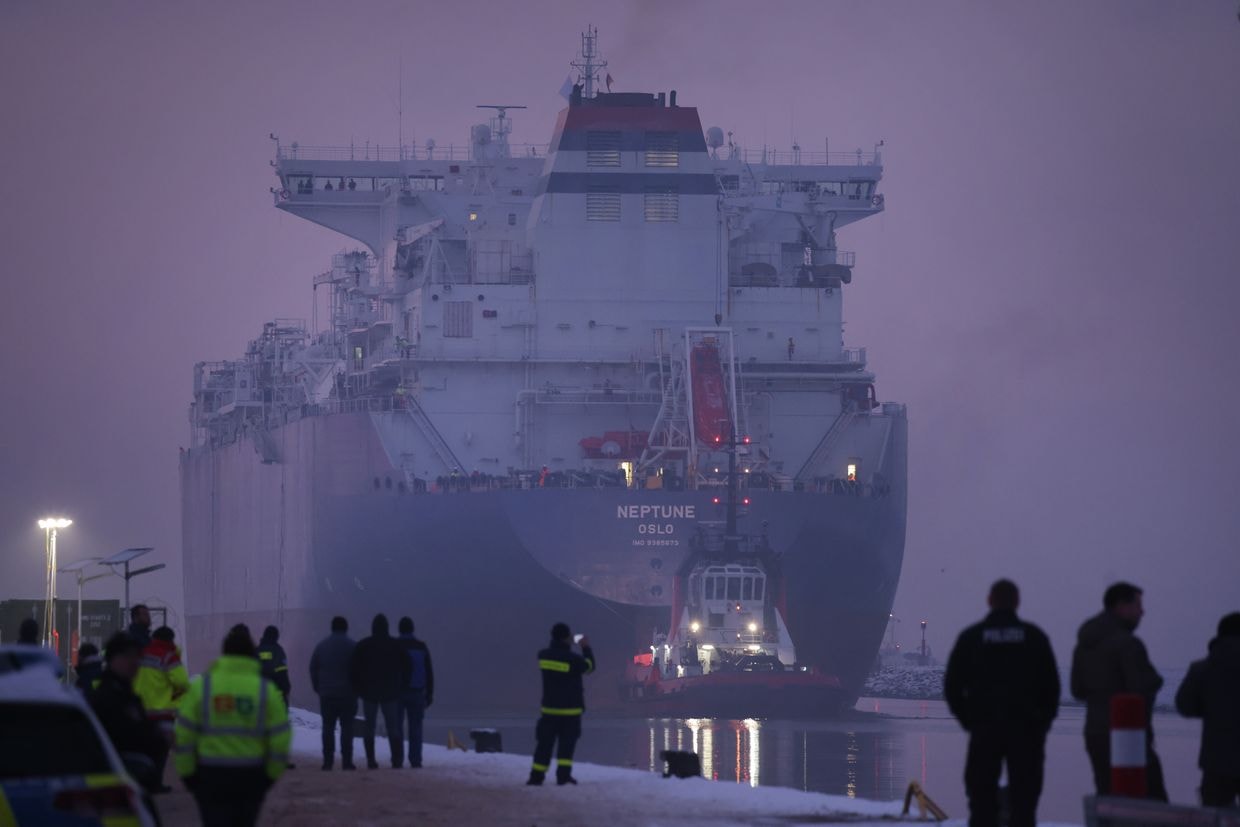Veronika Melkozerova: How looming Russian invasion changed lives of Ukrainians

The first thing I do every morning is grab my phone to read the latest news. And every morning I read about yet another ominous threat of Russia invading my home, Ukraine.
It’s either Kremlin spokesman Dmitry Peskov saying Ukraine joining NATO would mean death to Russia as we know it, or it is Russian President Vladimir Putin saying he would protect what he sees as Russian historical lands, but in reality, he would just occupy more of my own country’s lands.
It could be the self-proclaimed leader of Belarus Alexander Lukashenko, a faithful Kremlin proxy who says he would stand with Russia if the Kremlin decides to go to war. Or it could be Chechen leader Ramzan Kadyrov saying he would be ready to invade Kyiv if Putin orders to do so.
Not quite a good way to start a morning, but that is how we have been living in Ukraine since late October when Russia started bringing thousands of troops and weaponsto the border with Ukraine. Currently, there are 122,000 Russian soldiers massed near Ukraine’s eastern and northern borders and in the Russian-occupied Crimea, Ukraine’s Security and Defense Council reported in December.
This is the second time Russians build up military at our borders in a year, the previous buildup was in April. However, this time everything seems to be serious. Ukraine is back in the spotlight of the international media. News websites of different countries have been publishing scary forecasts of how Russia is going to attack Ukraine in January-February with 175,000 heavily armed troops and maybe even airstrikes. Some Russian propaganda news outlets have been fueling fear, reporting on how it will take minutes for Russia to invade Ukraine in case it decides to.
World leaders have had talks about Ukraine, with or even without Ukraine, trying to persuade the Kremlin to withdraw and turn to diplomacy. Kremlin has openly said it would talk only with the United States, offering two superpowers to decide Ukraine’s future. Putin made it clear he wants Ukraine to surrender its territory, its European aspirations and its freedom in favor of the restoration of the Russian rule over these lands.
Western journalists tweet about Ukrainians panicking over the possible Russian invasion, while Ukrainian authorities have been preparing bomb shelters for people to hide in case the predicted airstrikes happen.
Ukraine is interesting for the world only in the context of a Russian invasion.
Ukraine has turned into something of a victim of a serial killer. A survivor, who wants to tell the world her own story, wants to have her own life. Yet for the rest of the world, she is interesting only as a victim of an infamous serial killer.
As a freelance journalist writing mostly for Western media, I can see that pattern. It was so hard to get international media interested in what many Western reporters were calling “Europe’s forgotten war” that started in 2014 and has killed more than 13,000 Ukrainians since then.
Now it seems that everyone again turned their attention to the ongoing war that has been destroying our regions, dividing families and friends for more than eight years.
Diplomats and politicians in Kyiv are talking about the possible provocation the Kremlin might orchestrate in the Donbas to launch a larger-scale invasion. Russia has been fueling fears by claiming Kyiv is planning to get back its territories, which Russia occupied, by force.
And what about Ukrainians? It seems that we are left outside of our own story. Others always try to decide how we feel, how we should live, and what we should do about the looming threat of the Russian invasion.
For us, this war is not news.
Yes, we still don’t want it to come to the hot phase after all these years of hybrid conflict, but we are also not panicking. We got used to living in this twisted world, where we have to build the modern democracy, do our jobs, and pay taxes, while only some hundred kilometers away from us, there is a frontline, where soldiers are dying or are getting injured every day.
Because of how casual this has become, Ukrainians were the last ones to get worried about the war threats. The latest polls show that some 50% of Ukrainians are ready to stand up against Russia, while 33% are ready to put up armed resistance. Ukrainians have been joining the territorial defense brigades in different towns and cities. Even Ukraine’s east, historically pro-Kremlin region, is ready to stand up against the aggressor, although numbers are lower there – some 25-29%. In late December, our government made it mandatory for women of more than 100 professions to register for possible military service and participate in civil defense efforts in case of a war.
Now I need to register at a local conscription office before the end of 2022. As well as many other Ukrainian women, I am ready to do that.
However, there are still some 15% of Ukrainians who would either flee or do nothing if Russia invades, according to a December poll by the Kyiv Institute of Sociology.
This poll accurately shows the mood of Ukrainians. There are people, like me, who can’t even plan their lives now without keeping in mind that there is a possibility of a full-scale war with Russia. It has never been as hard to plan a winter vacation.
There are Ukrainians, who live in denial, like some of my friends and family members. My 76-year-old granny Tamara Malyzheva, who still has the warmst feelings for the Soviet Union, can’t even comprehend what is happening these days. We discussed the possible Russian invasion at a New Year’s dinner with her. “I can’t believe how Russia, our brothers, stabbed us in the back. How can Russians allow their president to destroy us just for the fact that we wanted to make our own choices?” granny asked. At the same time, she said, she won’t run to a bomb shelter in case the Kremlin’s army attacks Kyiv. “I want to die in my apartment,” granny said.
Unlike my grandmother, most Ukrainians sure know the threat of Russia’s war is real.
However, instead of living in fear as I do, they chose to enjoy every moment of our life.
“We still won’t change anything. So why should we waste our lives on fears,” said a young woman Rita I met on Sofiivska Square in Kyiv in late December.
Despite the Covid-19 pandemic, streets and cafes were full of people during the winter holidays. The main Christmas tree on Sofiivska Square in Kyiv has never been more beautiful.
We still monitor the news every morning, anxiously waiting for the big decisions to be made for us, hoping the Russian leader hasn’t lost his mind and would calm down.
But if worst comes to worst, we are ready for war. Not many of us believe we can win, but that freedom and national pride we have finally rediscovered during the EuroMaidan Revolution in 2013-2014 are worth fighting for.
We have put so much at stake, we have lost so many of our best people that we can’t surrender and come back under the grim Russian rule that leaves no space for democracy, rule of law, and human rights.







